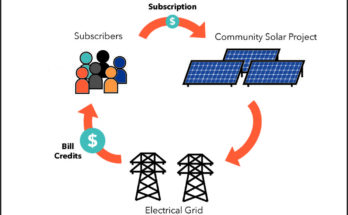Solid waste is defined as the unusable and unwanted products in the solid and semi-solid state derived from the activities and removed by society.
Waste can be considered as nothing but valuable material at wrong place. There is no substantial in this world, which is not useful in one-way or other. It’s man’s ignorance that he considers certain things as waste and other thing as useful. With the development as types of waste are changing, the attitude of people towards waste should be change. People must realize that the waste which they throwing in the streets are not actually waste it is the raw material for some other processes.
Nowadays the important subject that affects and worries mankind is the issues concerned with waste management. Waste management practices especially the municipal solid waste can differ for developed and developing nations, for urban and rural areas, and for residential, commercial and industrial producers. Methods and techniques for waste collection and disposal varies widely among different countries and regions. Domestic waste collection services are generally provided by local government authorities, or by private companies in the most of the urban cities. Countries and experts alike spend lot of time and resources to come out with a solution to the problem of environmental degradation and climate change. This problem is created by mankind due to thoughtless act of consumerism. A few decades back disposable things were only used in the western countries which are considered as developed. Now the trend has changed. Most of the stuffs being used in developing countries are disposable or readymade, which are causing a lot of wastage of our resources.
Community participation has a direct effect on efficient solid waste management plan. In Pakistan, the municipal authorities have failed to mobilize the community and educate citizens on the basics of handling waste and proper way of storing it in their own bins at the household, shop and institutional level and then disposing it in the communal storage points declared by the authorities. In the absence of basic waste infrastructure for collection of waste from source, citizens are prone to dumping waste on the streets, open spaces, drains, and water bodies in the vicinity creating unhygienic environment. Citizens assume that waste thrown in the streets would be picked up by the municipality through street sweeping.
This mind set is primarily responsible for the unscientific systems of waste management in the country. Most often the present efforts are disproportionate because all the stakeholders want others to control the uncleanness.
Awareness and education for SWM
Raising awareness about municipal solid waste management is an essential component of effective waste management. It is important for key stakeholders to be aware of a city’s waste management activities and have a strong understanding of the benefits of proper solid waste management. Although, many challenges arise when raising awareness about solid waste management, a variety of communication techniques can be used to address them.
Raising awareness about a city’s municipal solid waste management activities and the benefits of proper solid waste management can result in increases in:
- Use of city waste collection services by the public and private sectors.
- Funding for waste management from local elected officials.
- Adoption and enforcement of local waste management policies.
- Support for local-level activities from national or provincial governments.
- Public participation in awareness programs which results in segregation at point source and reduction of waste.
Each of these outcomes can contribute to waste management authority’s efforts to reduce the impacts of waste management on health, economy, environment, and society.
Challenges to Raising Awareness about Solid Waste
There are many barriers to raising awareness about a city’s waste management activities and the benefits for proper solid waste management. These barriers, which vary by stakeholder type, include:
- Lack of funds and capacity.
- Embedded cultural practices, behavioral norms, and beliefs (e.g., the belief that waste has no value, which is a challenge for effective source separation and recycling programs).
- Lack of familiarity with the economic opportunities associated with waste management.
- Capacity limitations of waste management agencies (e.g., lack of technical and financial resources for outreach).
- Unsupportive legal and regulatory frameworks.
- Lack of time or interest from key stakeholders.
Raising Awareness about Proper Waste Management with Different Stakeholder Groups
An effective campaign to raise awareness about solid waste management involves communicating with a wide range of stakeholders and specially community. The most effective messages will be specific to the stakeholder group and the challenges should be addressed. Limited public awareness about solid waste management operations can results in low utilization of services, e.g. open dumping and burning of waste, and unsafe practices (e.g., handling toxic wastes etc.). To tackle with these issues following steps must be taken into consideration:
- Raising awareness among local elected public representatives and other officials can lead to the adoption of waste management laws (e.g., bans on open dumping) in an effective way and increased financial support for waste management activities. The waste management company should work with local officials to formally incorporate informal recycling sector workers (i-e “waste pickers”) into the waste collection process. Upon registering with the city, they awarded the rights to collect waste in designated zones and collection bins and are provided uniforms.
- National or Provincial governments can support city waste management efforts by enforcing policies (e.g. bans on open burning) and providing assistance when city activities contribute to national-level goals. Coordinating with the provincial government to incorporate the city’s efforts to improve solid waste management into the country’s nationally appropriate mitigation action for solid waste management.
- Other stakeholders can strengthen messages about waste management (e.g., business community that is aware of the economic benefits of proper waste management activities might encourage elected officials to fund them.
- One of the plan’s strategies involves conducting targeted outreach to students. Incorporating waste education into the school curriculum is an effective way to deliver messages to households.
- Governments should make adequate provision (in form of technical and financial support) for recycling facilities and infrastructure.
- Governments should introduce and enforce the laws and regulations which are adoptable by community and community should adopt.
- Penalties should be levied on any waste producer that violates the regulations.
- Governments should promote house– to–house awareness campaign about door to door collection and segregation at source and its importance. For this, a team of social mobilizers should be the part of waste management company of a city.
- Provision should be made for at least a sorting center in each residential area.
- More buy–back centers should be created.
- The householders must be sensitized and educated through mass media about waste management programs.
- Private bodies who are interested in recycling business should be encouraged by the government, by providing enabling ground for them to operate.
- The government should focus on providing all the necessary means and incentives to improve voluntary segregation and recycling activities on point source level and on community level.



